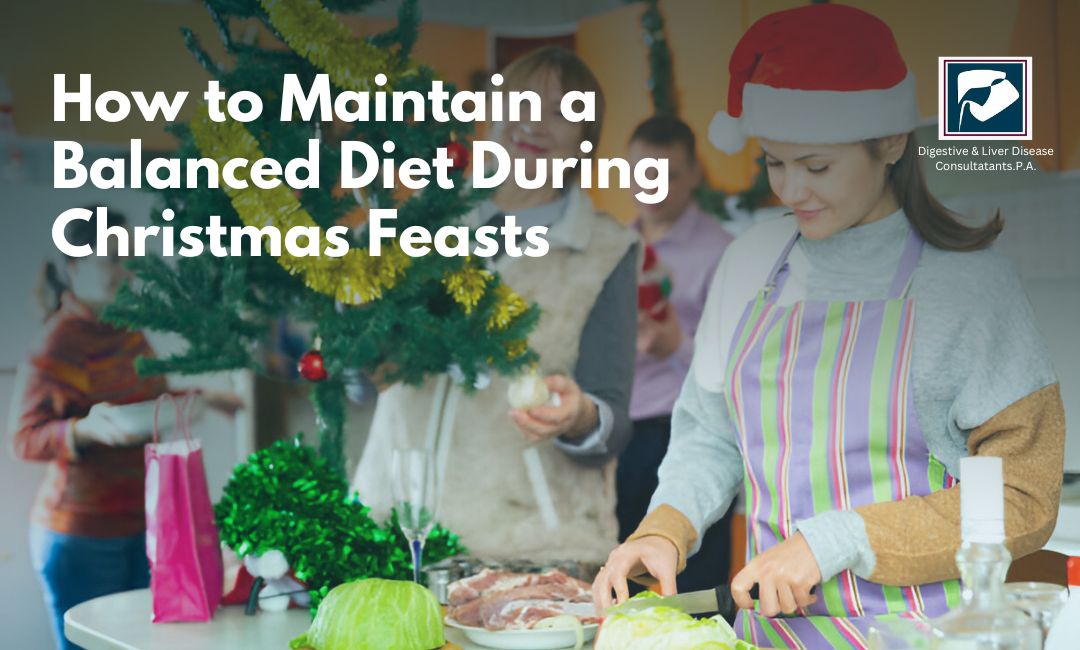The holiday season is a time of joy, celebration, and indulgence, and Christmas feasts are often the centerpiece of these festivities. From turkey and stuffing to pies and cakes, the delicious array of food is enough to tempt anyone into overindulgence. However, maintaining a balanced diet during Christmas is not impossible. With mindful planning and moderation, you can enjoy the festive spread without compromising your health. In this blog, we will explore practical tips for balancing nutrition and indulgence during Christmas feasts while still savoring all the flavors of the season.
1. Plan Your Meals Ahead of Time
One of the easiest ways to maintain a balanced diet during the holidays is to plan ahead. Look at the menu for your Christmas celebrations and decide which dishes are essential to you and which you can either skip or enjoy in moderation. Focus on including nutrient-dense options such as vegetables, lean meats, and whole grains. Planning your meals helps avoid overloading your plate with high-calorie options and gives you the chance to fill up on healthy choices first.
2. Balance Your Plate
A simple yet effective strategy is the "half-plate" rule: fill half of your plate with vegetables or salads, one-quarter with lean proteins (such as turkey or chicken), and the remaining quarter with whole grains (like quinoa or brown rice) or starchy vegetables (such as sweet potatoes). This method ensures you get a good balance of vitamins, minerals, protein, and fiber, keeping you full and satisfied without overloading on high-fat or high-sugar foods.
3. Portion Control
During Christmas feasts, it's easy to let portion sizes get out of hand, especially with so many tempting dishes available. To avoid overeating, try using smaller plates or serving sizes. This helps you control how much you're eating and prevents you from mindlessly piling food on your plate. By serving yourself smaller portions, you can enjoy a variety of foods without overconsuming.
4. Savor, Don’t Rush
The holidays can often be a time of fast-paced eating and socializing, but it's essential to slow down and savor your meals. Eating slowly gives your body time to signal when it's full, helping you avoid overeating. Take small bites, chew thoroughly, and engage in conversation between courses. By enjoying your food and eating mindfully, you're less likely to consume unnecessary calories and more likely to feel satisfied with what you've eaten.
5. Limit Alcohol Consumption
Alcohol is a common part of Christmas celebrations, but it can also contribute to excessive calorie intake. Drinks like mulled wine, eggnog, and cocktails are often packed with sugar and alcohol, leading to dehydration and an increased appetite. If you choose to drink, consider limiting your alcohol intake to one or two drinks and alternating with water or sparkling water to stay hydrated. This will help prevent the negative effects of alcohol and reduce your overall calorie consumption.
6. Include Healthier Alternatives
You don't have to eliminate all of your favorite holiday dishes—just find healthier versions of them! For example, instead of traditional mashed potatoes made with heavy cream and butter, try roasting or mashing sweet potatoes with a small amount of olive oil. You can also prepare desserts with less sugar, using alternatives like stevia or honey. These small substitutions allow you to enjoy festive foods without derailing your healthy eating goals.
7. Stay Active
Physical activity is an essential component of a healthy lifestyle, especially during the holiday season. If you’re indulging in a big Christmas feast, consider incorporating some physical activity into your day to balance out the extra calories. Go for a walk after the meal, take part in a family game of football, or even do a short workout in the morning before the festivities begin. Keeping active will not only help manage your weight but also boost your mood and energy levels during the holidays.
8. Practice Mindful Eating
Mindful eating is about being fully present during your meals and listening to your body’s signals. Before you begin eating, take a moment to check in with yourself—are you hungry or just bored? While feasting, pay attention to how the food tastes and how your body feels as you eat. Mindfully savoring each bite can help you feel more satisfied with smaller portions, reducing the temptation to overeat.
9. Don’t Skip Meals
It may seem tempting to skip meals in the days leading up to a Christmas feast to “save room” for the big meal, but this often leads to overeating later. Skipping meals can cause your blood sugar levels to drop, leaving you feeling famished and more likely to indulge in unhealthy options. Instead, eat regular, balanced meals throughout the day, including snacks that combine protein and fiber, such as a handful of nuts or some fruit with yogurt. This will help stabilize your hunger levels and prevent overindulgence when it's time to eat.
10. Stay Hydrated
Sometimes, our bodies mistake thirst for hunger, leading to overeating. During Christmas feasts, it’s easy to forget to drink enough water amid all the food and drinks. Aim to drink plenty of water throughout the day, and consider having a glass of water before each meal. This simple habit can prevent unnecessary snacking and help you stay hydrated, which is crucial for your overall well-being.
11. Incorporate More Plant-Based Foods
Including plant-based dishes in your Christmas spread can provide your body with essential nutrients while keeping calories in check. Vegetables like Brussels sprouts, carrots, and broccoli are rich in fibre, vitamins, and antioxidants, while legumes and whole grains are great sources of plant-based protein. These foods can help you feel full without loading up on calories and fat.
12. Don’t Stress About Perfection
Remember that Christmas is a time to enjoy and celebrate with loved ones. You don’t have to be perfect when it comes to maintaining a balanced diet. Allow yourself to indulge in your favourite dishes without guilt, but be mindful of your choices throughout the day. A balanced diet is all about moderation, and one meal won’t undo all of your hard work.
Conclusion
Christmas feasts are a time to enjoy delicious food, connect with family and friends, and celebrate the holiday season. By planning, making mindful choices, and practicing moderation, you can maintain a balanced diet without missing out on the fun. Remember to fill your plate with a variety of nutrient-dense foods, control your portions, and stay active to keep your health in check. And above all, enjoy the holiday season in a way that feels right for you.
If you’re struggling with digestive discomfort or need personalized advice on maintaining a balanced diet during the holiday season, don’t hesitate to schedule a consultation with one of our specialists at DLDC.











